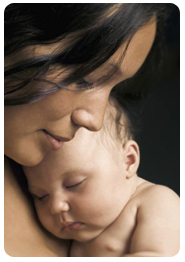 Conditions for which a PGD protocol for inherited predisposition to cancer is available in our Centre
Conditions for which a PGD protocol for inherited predisposition to cancer is available in our Centre
PGD is available for several hereditary cancers such as Li–Fraumeni syndrome, Neurofibromatosis type 1 and 2, Von Hippel–Lindau syndrome, Retinoblastoma and BRCA1.
The two most prevalent syndromes are breast and hereditary non-polyposis colon cancers that are associated with mutations in the BRCA1/2 genes and MSH2 /MLH1 genes respectively. Other syndromes include multiple endocrine neoplasia (MEN1, MEN2 genes), retinoblastoma (RB1 gene), Neurofibromatoses (NF1, NF2 genes), Li Fraumeni syndrome (p53 gene) and Familial Polyposis (FAP gene).
All these cancers are autosomal dominant traits that usually manifest in adulthood, but can occur occasionally in children. Malfunction of tumour suppressor genes, impairment of DNA repair genes or the transformation of a normal gene into an oncogene are well known events that lead to the development of these genetic cancers.
Our experience in PGD for inherited cancer susceptibility
|
Disease
|
Gene
|
No.
of Cycles
|
No.
of Couples
|
No.
of clinical pregnancies
|
No.
of pregnancies still ongoing
|
No.
of pregnancies delivered
|
| Li-Fraumeni Syndrome |
p53
|
2
|
1
|
0
|
0
|
0
|
| Neurofibromatosis type 1 |
NF1
|
4
|
3
|
1
|
1
|
0
|
| Retinoblastoma |
RB1
|
4
|
2
|
0
|
0
|
0
|
| von Hippel-Lindau syndrome |
VHL
|
1
|
1
|
0
|
0
|
0
|
|
Total |
|
11
|
7
|
1
|
1
|
0
|